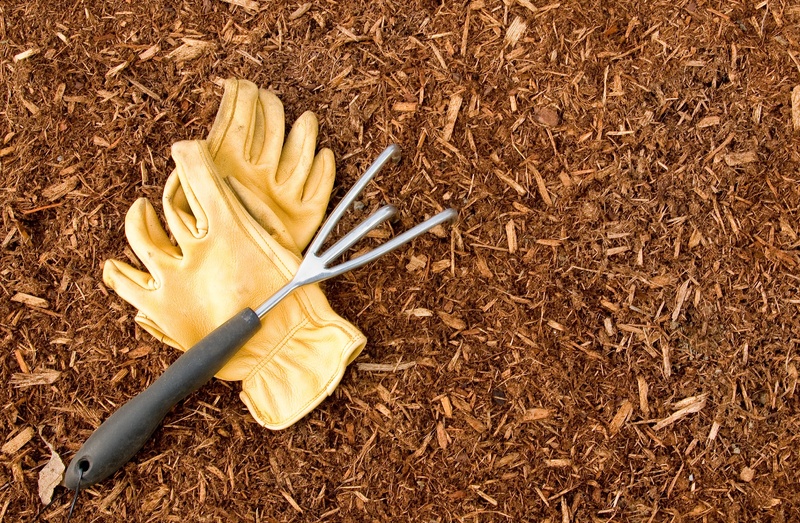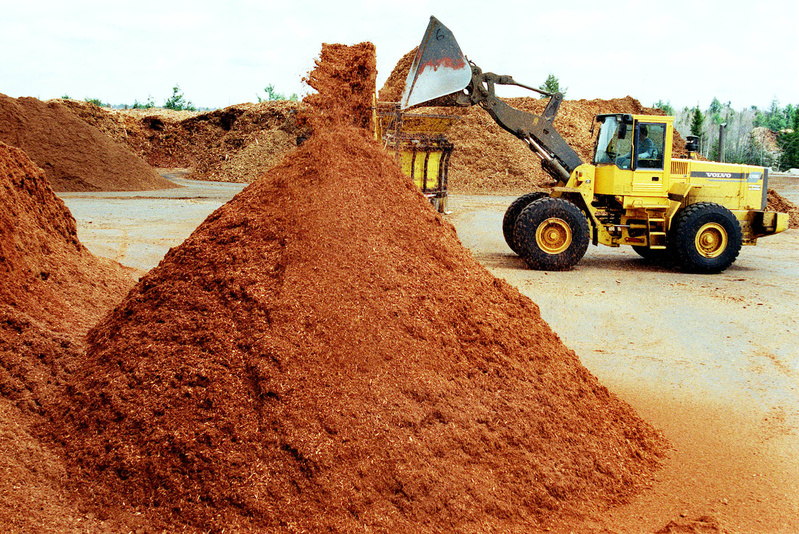Why mulch?
If you think about it, isn’t mulch just some crushed-up bark or wood that people spread around their shrubs and plants because it looks better than weeds?
The answer is yes, sometimes.
“People do like to use mulch for a nice finished look, and because it can suppress some weeds,” said Jeff O’Donal of O’Donal’s Nursery in Gorham. “But it also holds in moisture, which is important. And natural mulch will decompose to feed the plants.
“So really, the best thing to do is a use a mixture of mulch and compost.”
OK, then — what kind of mulch should you look for when planning your garden?
Mulch — loosely defined as any material you put on top of soil around plants, trees and shrubs — can have benefits, depending on what you can use. But there are mulch products sold which are purely aesthetic and serve very little gardening purpose.
In fact, they might be harmful.
Many wood mulches, for instance, are made from demolished construction material and hardwoods. Instead of being labeled “cedar” or “pine” like natural mulches, these are usually labeled just “red” or “black” depending on the color they are painted, said Pete Bottomley, an owner of Coast of Maine Organic Products, which makes several types of natural mulch and compost.
“Those hardwoods take a long time to decompose, and they’ll end up keeping nutrients from your plants,” said O’Donal. “And you can’t tell me those paints and pigments won’t get into the soil.”
Bark mulches are generally better for plants than solid wood mulches.
Coast of Maine sells what it calls an “enriching mulch” made from bark taken off trees used by Maine’s paper industry decades ago. Basically, before there was a mulch industry, huge piles of bark were accumulated by the mills and they are now being sold off, Bottomley said.
“It’s a naturally composted material, so it’s good for feeding plants, annuals especially,” he said. “It still looks like bark, dark brown, but it enriches, or feeds.”
As for solid wood mulch, Coast of Maine sells natural cedar mulch. O’Donal says he would rather not use wood mulch for any plants, and Bottomley recommends it mostly for trees.
“Trees don’t need mulch to break down fast, so you can use the wood mulch there to keep the area clean and free of weeds,” said Bottomley.
For delicate flowers like roses, Bottomley recommends using hay and straw mulch in winter to protect the base of the plant. Both he and O’Donal say it’s probably not a good idea to put wood mulch around perennials or annuals.
O’Donal says for most plants, he’d prefer to use a blend of compost and mulch, like the Nutri-Mulch made in Unity by New England Organics. It’s a blend of aged Maine bark and Earthlife brand compost.
“It energizes the plant and greens it up, and it spreads very evenly,” said O’Donal.
The best thing to do when considering mulch is to consider what it’s being used for and then go shopping. Wood mulch might be fine for aesthetics around your shrubs and foundation of your house, but for the health of most plants, you’ll want to think bark and compost.
Or both.
Staff Writer Ray Routhier can be contacted at 791-6454 or at:
rrouthier@pressherald.com
Copy the Story Link
Send questions/comments to the editors.





Success. Please wait for the page to reload. If the page does not reload within 5 seconds, please refresh the page.
Enter your email and password to access comments.
Hi, to comment on stories you must . This profile is in addition to your subscription and website login.
Already have a commenting profile? .
Invalid username/password.
Please check your email to confirm and complete your registration.
Only subscribers are eligible to post comments. Please subscribe or login first for digital access. Here’s why.
Use the form below to reset your password. When you've submitted your account email, we will send an email with a reset code.